
 Flash News
Flash News
Ceno Klosi with over 800 stolen votes, Balluku finds the reason is the tiredness of the counters
"Fast & Furious" in the former Block, police chase an Audi Q8, 4 cars collide
Car hits two tourists on a motorcycle in Fushe Arrëz, one of them dies
Serious accident in Thumanë, one dead, 3 injured
Durrës Court suspends the director of Pre-University Education from duty
Moscow's contradictory statements: Is the friendship with Vučić breaking down?

At the height of mass protests against the Serbian government and citizens' demands for early elections, Serbian President Aleksandar Vučić turned to Russia again.
Vucic, on June 30, thanked "Russian friends" - as he called Moscow's leadership - for their "understanding."
This was his response to the statement of Russian Foreign Minister Sergey Lavrov, who said that Moscow is interested in the unrest in Serbia being resolved "in accordance with the Constitution and laws."
But, on the same day, Aleksandar Dugin, a well-known Kremlin ideologue and close confidant of President Vladimir Putin, declared that the people in Serbia "no longer love Vučić."
"Serbs want Vucic to be gone. And this is true. All Serbs want this," Dugin told Russian state media outlet Sputnik.
These contradictory messages from Moscow come seven days after Russia's Foreign Intelligence Service published a statement alleging that Serbia, through intermediate channels, is exporting weapons to Ukraine - a country that Russia launched an invasion of in February 2022.
Is the friendship breaking down?
Ivana Stradner, an analyst at the Foundation for Defense of Democracies in Washington, does not believe that there is a breakdown in relations between Vučić and Russia.
According to her, the Kremlin supports Vučić because "it can control him."
"Moscow is not interested in a democratic and unpredictable government in Serbia," Stradner told Radio Free Europe (RFE/RL).
She added that Russia has historically promoted autocracy, and is using the same tactics in Serbia as in Georgia.
In his statement, Lavrov also warned of the possibility of a "color revolution" in Serbia, accusing Western countries of "usually trying to exploit internal situations to promote their own interests, to the detriment of other partners."
"We hope that this time they will not engage in color revolutions," Lavrov said, using the term the Kremlin associates with the overthrow of authoritarian regimes through externally supported civic movements.
Vučić, since the beginning of the protests, has been claiming the same thing - that a "color revolution" is being attempted in Serbia.
Praise in times of crisis
The mutual statements between Moscow and Belgrade were made on a day when massive road blockades were organized throughout Serbia as a form of civil disobedience.
This was a reaction to the arrests, following clashes between police and protesters, on June 28 in Belgrade, during protests announced by both supporters and opponents of the Government.
The police responded to the protesters with arrests and the dismantling of blockades, while the protesters accused them of using excessive violence. They are demanding early parliamentary elections, a demand that the government rejects.
“Masat represive të kësaj qeverie më kujtojnë Moskën para një dekade gjatë protestave atje. Është manual i regjimeve autoritare”, vlerëson Ivana Stradner.
Vuçiq, duke mbrojtur veprimet e policisë, përdori të njëjtën frazë si Lavrov – “në përputhje me Kushtetutën dhe ligjin” – duke i cilësuar aksionet e policisë si “plotësisht profesionale”.
“Unë nuk do të befasohesha nëse Rusia forcon aktivitetet e saj të inteligjencës dhe rrit mbështetjen për qeverinë në Serbi”, paralajmëroi Stradner për REL-in.
“Kërkimfalja” e Vuçiqit ndaj Moskës
Sipas Andrey Sharyt, drejtor i Shërbimit rus të Radios Evropa e Lirë, falënderimet e Vuçiqit ndaj Lavrovit dhe Moskës janë në fakt “një formë faljeje dhe servilizmi ndaj Kremlinit”.
Ai kujton se këto falënderime erdhën pasi shërbimi rus i inteligjencës publikoi raportin se Serbia po dërgon armë në Ukrainë përmes ndërmjetësve – pretendime që Kremlini i përdori për të qortuar Beogradin.
Fillimisht, Vuçiq mohoi këto akuza, por më vonë pranoi se nuk mund të kontrollojë se ku përfundon municioni. Më 23 qershor, Serbia njoftoi pezullimin e eksportit të armëve.
Në emër të kujt flet Dugin?
Krahas Lavrovit dhe “miqve rusë”, Vuçiq falënderoi edhe “analistët e rrallë të paanshëm rusë”.
Por, njëri prej tyre, Aleksandar Dugin, i njohur për lidhjet e tij me Kremlinin, e kritikoi ashpër.
“Legjitimiteti i Vuçiqit ka marrë fund”, tha Dugin për Sputnik-un, duke shtuar se “të gjithë serbët duan largimin e tij”.
Sipas tij, Vuçiqin sot e mbështet vetëm shteti, ndërsa “mbështetja nga populli është zero”.
Dugin përdori gjithashtu termin “revolucion me ngjyra”, duke thënë se “vetëm ata që kanë frikë nga një revolucion i tillë nuk po marrin pjesë në protesta”. Sipas tij, “për Vuçiqin ka ardhur fundi”.
Stradner thotë se komenteve të Duginit “nuk u duhet dhënë shumë rëndësi”, pasi ai nuk ka aq ndikim te Putin sa mendohet.
Por, drejtori i Shërbimit rus të REL-it, Shary, mendon se deklaratat e Duginit janë më të rëndësishme sesa ato publike të Lavrovit.
“Kremlini e përdor Duginin sa herë që dëshiron të dërgojë një mesazh nga krahu i djathtë që zyrtarisht nuk mund ta thotë vetë. Lavrov nuk do ta thoshte kurrë publikisht këtë”, thotë ai.
Sipas Sharyt, fakti që Dugin foli për një media të kontrolluar direkt nga Kremlini, nuk është rastësi.
“Kjo tregon se Dugin mori leje, sinjal nga Moska, për ta thënë këtë. Është mënyra se si Kremlini i bën presion Vuçiqit”, thotë ai.
Dhe, shton se, nëse Vuçiq nuk e kupton mesazhin, presioni mund të rritet.
“Sot e thotë Dugin, nesër mund ta thotë një analist tjetër. Pasnesër mund të bëhet qëndrimi zyrtar i Moskës. Dhe, kjo për Vuçiqin, që përpiqet të balancojë mes Evropës dhe Rusisë, është serioze”, vlerëson Shary.
Stradner thotë se politika e balancimit që ndjek Vuçiq “nuk është diçka që Moska dëshiron ta tolerojë, për dallim nga Brukseli”.
Ajo kujton varësinë e Serbisë nga gazi dhe nafta ruse.
As Serbia tries to delay the imposition of US sanctions on the Serbian Oil Industry, which is majority-owned by Russia, it is holding talks with Moscow on a new gas supply agreement.
"Putin may be prevented from exporting weapons to Ukraine, but if Russia loses the gas market, it also loses influence. That's why they are sending messages," she says.
Telegram, the propaganda tool
According to Shary, another tool for spreading Russian propaganda is the social network Telegram, where hundreds of pro-Russian channels are active in Serbia, some with tens of thousands of followers.
In recent days, some of them reported on road blockades in Belgrade and other cities, often only with the location, without much other information.
Meanwhile, other channels on Telegram expressed support for Vučić, but there was also criticism of him from pro-Russian mercenaries fighting in Ukraine, including Dejan Berić, a Serbian sniper convicted of participating in foreign wars.
Berić openly criticized Vučić for his meeting with Ukrainian President Volodymyr Zelensky, and for the accusations over the export of ammunition to Kiev.
"The Russian government and Putin are using Telegram for propaganda, as other platforms have lost them due to sanctions," says Shary.
He emphasizes that unofficial channels are the Kremlin's way of sending messages to Belgrade to "be careful what you do."
"Victory" over the "color revolution"
Vučić has been saying for months that he has "failed the color revolution" and refuses to meet the protesters' demands, which spread after the tragedy in Novi Sad, where 16 people lost their lives when the roof of the train station collapsed.
Protesters linked the tragedy to corruption in the station reconstruction project, which the government had promoted as a success.
On June 30, Vučić said that power is gained in elections, "when the competent bodies announce them, not when a gang of hooligans demands it."
"We will protect order in the country. Thank you to our Russian friends for your understanding and attention to what is happening in Serbia," Vucic said.
"But, I want to tell them and everyone: no matter how much they organize and pay... this is over. I want to inform them that Serbia has won and I look forward to continuing cooperation with the Russian Federation," Vučić concluded./REL
Latest news





Lufta në Gaza/ Pse Netanyahu do vetëm një armëpushim 60-ditor, jo të përhershëm?
2025-07-02 21:56:08
US suspends some military aid to Ukraine
2025-07-02 21:40:55



Methadone shortage, users return to heroin: We steal to buy it
2025-07-02 20:57:35
Government enters oil market, Rama: New price for consumers
2025-07-02 20:43:30
WHO calls for 50% price hike for tobacco, alcohol and sugary drinks
2025-07-02 20:41:53







Israel agrees to 60-day ceasefire in Gaza, but many unanswered questions remain
2025-07-02 18:35:27
The weather in Germany is going "crazy", temperatures reach 40°C
2025-07-02 18:22:21

"Fast & Furious" in the former Block, police chase an Audi Q8, 4 cars collide
2025-07-02 17:59:25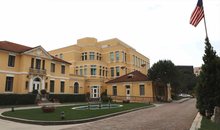
"Birth on a tourist visa? US Embassy warns Albanians: This is prohibited!"
2025-07-02 17:48:16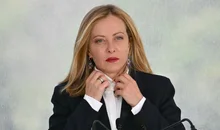


BIRN: Fier recount reveals vote trafficking within open political party lists
2025-07-02 16:57:19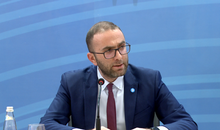

CEO and former director of 'Bankers Petroleum' arrested in Fier
2025-07-02 16:40:42
Car hits two tourists on a motorcycle in Fushe Arrëz, one of them dies
2025-07-02 16:33:23
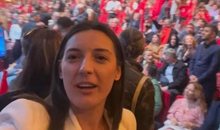

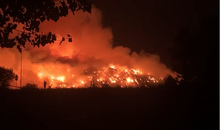
Fire at the Elbasan Incinerator Landfill, Prosecution Launches Investigations
2025-07-02 15:34:54
What you need to know if you travel to a country with active volcanoes
2025-07-02 15:33:03

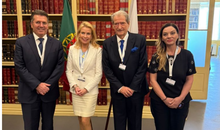

EU proposes 90% reduction in greenhouse gases by 2040
2025-07-02 14:50:23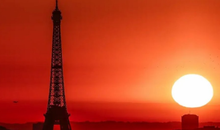
Europe is burning from the heat / Italy and France are on maximum alert
2025-07-02 14:36:52
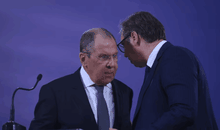
Moscow's contradictory statements: Is the friendship with Vučić breaking down?
2025-07-02 14:21:05
'I lost my battle': Sea warming is killing fishing in Albania
2025-07-02 14:08:35
Sekretet kimike që ndihmojnë në mbajtjen e mjaltit të freskët për kaq gjatë
2025-07-02 14:01:26
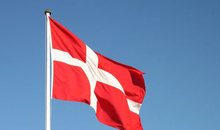
Denmark makes historic decision to make military service mandatory for women
2025-07-02 13:44:33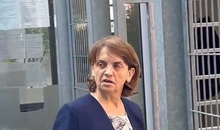
The appeal of the GJKKO leaves former judge Pajtime Fetahu in prison
2025-07-02 13:30:20
Productivity losses could reduce GDP by 1.3% as a result of extreme heat
2025-07-02 13:21:04
He abused his minor daughter, Zamir Meta is left in prison
2025-07-02 13:04:04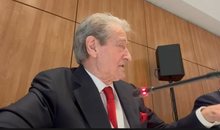

Waste burning in Elbasan, Alizoti: They are poisoning people and stealing money
2025-07-02 12:48:39
Civil disobedience continues in Serbia, dozens of people detained
2025-07-02 12:40:32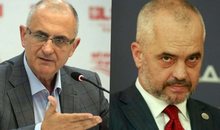
Rama's government was born under the sign of garbage and will end like this
2025-07-02 12:28:09
Water prices increase in the municipalities of the Elbasan region
2025-07-02 12:13:38
Civil disobedience continues in Serbia, what is happening in Belgrade?
2025-07-02 12:07:44
Serious accident in Thumanë, one dead, 3 injured
2025-07-02 11:54:42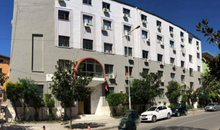
Durrës Court suspends the director of Pre-University Education from duty
2025-07-02 11:49:27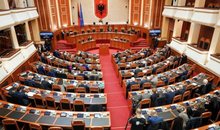
Plenary session on Thursday, what is expected to be discussed
2025-07-02 11:36:43
Europe is burning from heat waves/ What is the 'thermal dome' phenomenon?
2025-07-02 11:26:25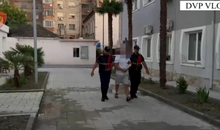
Wanted by Italy for murder, 45-year-old arrested in Vlora
2025-07-02 11:19:31
Fire situation, 28 fires reported in 24 hours, 2 still active
2025-07-02 11:13:20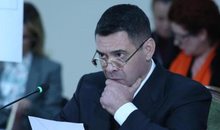
"Buka" file, preliminary hearing for Ahmetaj postponed to July 17
2025-07-02 11:03:30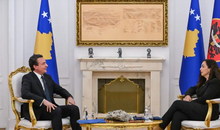
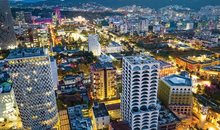
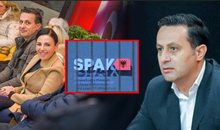
Baçi: Belinda Balluku and Ceno Klosi, the most dangerous "gangs" in Fier
2025-07-02 10:32:09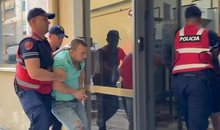
Zamir Meta, suspected of sexually abusing his daughter, arrives in court
2025-07-02 10:21:33
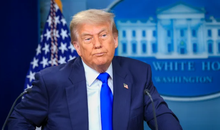
Trump: Israel has agreed to a 60-day ceasefire in Gaza
2025-07-02 10:01:55
Fire continues at Elbasan landfill
2025-07-02 09:51:13

Dates to note during July, important events will occur
2025-07-02 09:31:45
The hearing for Jorgo Goro's claim is postponed
2025-07-02 09:24:19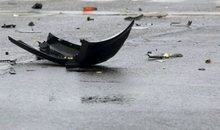

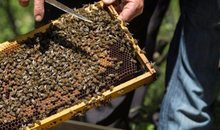

Foreign exchange, the rate at which foreign currencies are sold and bought
2025-07-02 08:42:31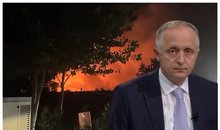

52% of pensioners did not receive full pension in 2024
2025-07-02 08:27:18
Horoscope, what do the stars have in store for you today?
2025-07-02 08:13:36
Hot weather, Wednesday brings high temperatures
2025-07-02 07:59:16
Morning Post/ In 2 lines: What mattered yesterday in Albania
2025-07-02 07:46:15
Heatwave sweeps across Europe, Spain and England record hottest June ever
2025-07-01 22:57:41






Golem and Qerret without water at the peak of the tourist season
2025-07-01 21:09:32

Euractiv: Italy-Albania migrant deal faces biggest legal challenge yet
2025-07-01 20:53:38
BIRN: Brataj and Fevziu victims of a 'deepfake' on Facebook
2025-07-01 20:44:00

Vlora by-pass, work delays and cost increases
2025-07-01 20:24:29



Milan are expected to give up on the transfer of Granit Xhaka
2025-07-01 19:41:25

